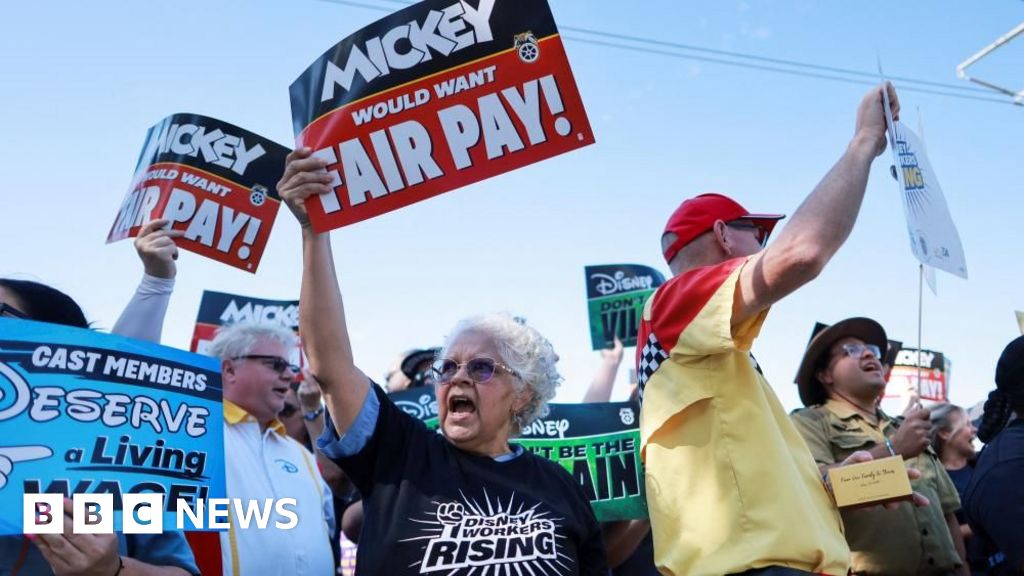Cynthia “Cyn” Carranza meticulously scavenged for a shady parking spot in the car she called home.
The overnight custodian at Disneyland has to sleep during the day - a difficulty for anyone, let alone when you’re living in your car with two dogs. Ms Carranza says she makes $20.65 an hour (about £15.99) at the park but last summer, she couldn’t afford rent in this Southern California city where the average apartment can run more than $2,000 (about £1,550) a month.
…
Ms Carranza, like others who work at the park, detailed to the BBC the financial hardships that come with working at what’s supposed to be the “Happiest Place on Earth”. About 10,000 union workers at Disneyland - the first of 12 parks created around the globe - are threatening to strike over the wages and what they say are retaliatory anti-union practices.
Hundreds of workers protested outside the park this week, with an array of signs and pins showing Mickey Mouse’s gloved fist in defiance.
“Mickey would want fair pay,” workers chanted outside Disneyland near the park’s gates.
They voted almost unanimously to authorise strike action on Friday, just days before union contract negotiations for workers are set to resume.



Part of the problem is that the main anti-Disney political coalition doesn’t want to address the local housing crisis; they want the region to go back to being a suburban sprawl.
You could easily build dense housing in the area that meets the balloon test, but Disney doesn’t want to push it and the anti-coalition doesn’t want it either.
Disney could build affordable housing, too, as a perk.
You’d need some serious regulation and enforcement. Company towns have historically been, uh… not great.
For example, imagine Disney rents apartments cheap to their employees but still underpays them. Now they’re stuck working for Disney because they can’t afford the rent offsite and can’t save enough to quit.